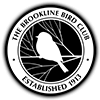Native Plants for Birds
Native birds co-evolved and depend on native plants for their survival. Here are some useful sources for learning about native plants: each website provides a piece of essential content for plant field identification, selecting by habitat requirements native plants for your garden, porch or neighborhood, and where native plants might be purchased or obtained.
Note:
Here is an annotated list of resources to get started. Many city town garden clubs maintain a website, resources, and annual plant sales. Choose straight native over cultivar or non-native specimens. Please let the club know of any resources you’ve found helpful. Thanks!
National Audubon Society provides an overview of native plants, and a list of resources by zip code. A useful place to begin.
Massachusetts Audubon Society lists information about native plants by sanctuary.
Need help identifying and managing/eradicating invasive plants? See https://www.massaudubon.org/learn/nature-wildlife/invasive-plants
Here is their blog about native plants: https://blogs.massaudubon.org/yourgreatoutdoors/we-heart-native-plants/
The USDA provides helpful information and fact sheets on native and invasive plants through its Natural Resources Conservation Service Massachusetts.
https://www.nrcs.usda.gov/wps/portal/nrcs/main/ma/plantsanimals/
American Bird Conservancy, a premier organization dedicated to supporting and building partnerships among the peoples in the Americas regarding migratory and non-migrating birds. A few well-chosen plants like Virginia Creeper can sustain migrating birds such as thrushes.
Native Plant Trust (formerly New England Wildflower Society) is one of New England’s premier resources for studying botany, observing and purchasing native plants. They are located in Framingham, MA; a visit to their Garden in the Woods – and their website – is inspiring.
University of Massachusetts Amherst maintains a very informative website, including background agriculture information, and an extensive list of native plants by habitat, soil and light requirements. Being local to MA, this website is especially responsive to the needs of local birders and gardeners.
https://ag.umass.edu/landscape/fact-sheets/north-american-plants-for-new-england-gardens
Go coastal! If you are fortunate to live near the beach, or if your habitat is dry, sunny and sandy, this website is for you!
https://www.mass.gov/service-details/coastal-landscaping-in-massachusetts-plant-list
Do you live on Cape Cod? The Association to Preserve Cape Cod can help:
https://apcc.org/our-work/education/native-plant-initiative/
Maintained by Texas-based Ladybird Johnson Wildflower Center, this popular website has specific information for Massachusetts-based gardeners and includes information about soil, water and light requirements, and plant suggestions from their staff.
https://www.wildflower.org/collections/collection.php?collection=MA
Based in Maine, Wild Seed Project presents practical, cutting-edge information about native plants, including rewilding, hellstrip planting (that impossible strip of “soil” between the sidewalk and the street), pop-up parks to make a mostly urban setting more green (https://wildseedproject.net/2016/06/pop-up-parks-and-parklets-just-add-plants-and-seating-to-bring-nature-and-people-together-in-urban-landscapes/?mc_cid=e0d3b26140&mc_eid=7e7cd88053) and diversifying and maybe getting rid of your lawn. They also sell native seed packets!
Entomologist and Wildlife Ecologist Doug Tallamy provides a wealth of research-based insights, analysis and ideas for why native plants matter, as well as the real threats from invasive plants. A must-read!
Offering speakers, workshops and field experiences, Grow Native strongly advocates for the use of native plants, and provided many resources for learning.
